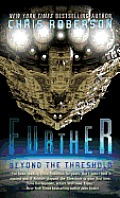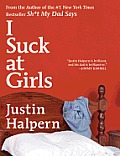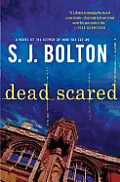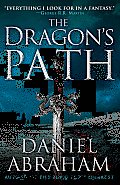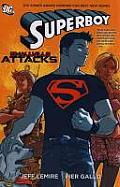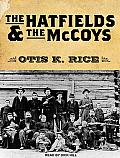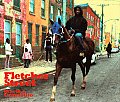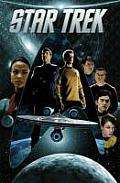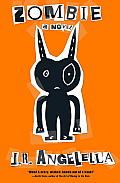Link to this review in the form of a comic strip by billba tagged science fiction
Link to this review by silver tagged humor • coming of age
This book is about the history of Halpern’s (mostly bad) luck with women.
At lunch one day, he tells his father he’s going to ask his girlfriend to marry him. His dad’s reaction isn’t very supportive, but is very typical of the terse comments that made him famous on twitter. “Good for you. I will have the romaine & watercress salad.” At his father’s urging, Justin looks back at his life and considers his decision to get married.
Justin is a quiet guy who is shy and nervous, especially around girls. He spent most of his Friday evenings during high school days at home, watching TV with a friend. In one of the first stories he recounts, he and a friend went half a world away to Ibiza, Spain, for the sole purpose of attending wild parties and having sex. Drunk, Justin challenged people to dance battles, but his moves didn’t get him any ladies. After too much partying, he had unbearable stomachaches and was doing quite a bit of projectile vomiting. A Spanish doctor who examined him in an ER told him, “You are good at sit down,” meaning he wasn’t made for wild nights but was more suited to a sedate lifestyle.
Why I picked it up: I loved the author’s first book. I laughed so hard that I had to put the book down to wipe away tears.
Why I finished it: I couldn’t stop thinking of Justin and his father though this is about Justin and girls, not about his father at all. Over and over, I see the author returning to his father for man-to-man talks, advice, and comfort. One Friday afternoon Justin shows up at his parents’ house. His dad tells him he doesn’t want to see him on Fridays because he needs to have a life. Then his dad tries to give Justin money to fix his car. Justin refuses it. His father: “You are broke. I got a little money, your car is a piece of shit that needs to be fixed…fix your car, cut back your hours, take a little time for yourself. Get your shit together.”
I just loved peeking into Justin and his father’s relationship and how this (beyond) straightforward father and shy son help each other. I was very envious of him having a father who is so tough yet loving.
I’d give it to: My brother, Sekang, and my sister, Jungok. I could not stop comparing my father and Justin’s dad. I want to compare notes with them — I remember my father being blunt, but I don’t remember that being funny. One day my siblings and I were talking about politics at home. My father was not involved in the conversation for a change. After my sister said something he stopped her, “Do you know why you sound so stupid? Because you don’t read.” Was that amusing to anyone at the time? Would they think Justin’s dad is funny, like I do, or just mean?
Link to this review by emilyjones tagged mystery • thriller
Students are killing themselves at Cambridge University, but nobody seems to know why. Detective Constable Lacey Flint goes undercover as a student to observe what’s happening on campus, but almost immediately she ignores orders and begins her own investigation. There have been nineteen suicides in five years, and Lacey is certain there is a connection between them. Could someone be encouraging students to take their own lives? Or is something worse going on?
As Lacey finds troubling similarities among the deaths, she’s not sure whether she’s close to finding answers or to becoming another statistic herself.
Why I picked it up: I enjoyed two of Bolton’s previous novels, Sacrifice and Blood Harvest. The idea that someone could be using suicides to cover up murders, or cause suicides, seemed completely improbable, but Bolton is a wickedly talented writer and I figured if anyone could do it, she could.
Why I finished it: As Lacey learns more about the terrifying nightmares and hallucinations suffered by many of the students who killed themselves, she begins hearing voices and feeling like she’s being watched when she sleeps. I didn’t know whether Lacey was becoming emotionally involved or if whatever afflicted the students was happening to her, too.
The chapters alternate between Lacey’s investigation and the college therapist who is helping her with the case, and the way Bolton parallels their individual mental breakdowns is disturbing.
I’d give it to: Nate, who will be drawn into the setting since he lived near Cambridge for two years and will appreciate the descriptions of dorm life and bizarre student traditions, like the three course meals regularly served in the student dining hall, the secret societies, and the hazing rituals.
Link to this review by flemtastic tagged coming of age • fantasy
Powerful men are jockeying for control of factions that may or may not have King Simeon’s best interests in mind.
Geder Palliako is one of the pawns in their game, sent to war as an officer, despite a lack of soldierly ability and experience. He would rather read ancient tomes than fight, but his lack of skill quixotically makes him the perfect leader of a conquered city, at least according to the powerful men that place him there.
Cithrin is an orphan, raised as a ward of a bank until she comes of age. Caught in a city about to be sacked, she is sent out, disguised as a boy, with the bank’s wealth hidden under bales of wool in her cart. (The bank’s director knows its assets are going to be seized, and even the small chance that Cithrin can escape with the gold and jewels is a better bet than trying to hide them in town.)
The caravan that Cithrin joins has a secret, too — its guards are merely actors, and are unable to use the swords they carry. (All real guards have been press-ganged into the city’s defense.) The hero Marcus Wester, who leads the caravan, is aware of Cithrin’s deception. Snowed in on a mountain pass, her money will cause huge difficulties for everyone.
Why I picked it up: At the last ALA convention in Anaheim, I lived my dream: I got to talk to George R. R. Martin! I tried not to go fanboy on him, and asked him to recommend a few fantasy books. This was the first one he told me about.
Why I finished it: Marcus Wester is a great character. He is motivated by the loss of his wife and daughter and regret over his role in their deaths. He is a tragic hero, but he has a strong desire to live. Also, at the back of the book there’s an interview with the author, where he explains that he wanted to write a fantasy book that wasn’t just another analog for medieval England, so he used a book on Medici banking in the middle ages as his muse.
I’d give it to: My three sons, who read fantasy and have already worked their way through Peter V. Brett’s The Warded Man, which also has an immersive world. And because Abraham tells a compelling, epic story without having sex and violence on every page, I can feel good about recommending it to them.
Link to this review by geneambaum tagged superhero • graphic novel
A lab-born “byproduct of splicing Superman and Lex Luthor’s DNA,” Superboy a.k.a. Connor Kent is trying to make a life for himself in Superman’s hometown, Smallville. But things are far from simple. His best friend, budding mad scientist Simon Valentine, has figured out his secret identity. Lex Luthor’s niece is interested in him but doesn’t know about their family connection. And he’s going to have to fight Parasite, Poison Ivy, and Doomsday before facing dark, mystical forces as the Phantom Stranger has foretold.
Originally published as Superboy 1-11 (2011).
Why I picked it up: Jeff Lemire wrote the amazing Essex County, and I wanted to see what he’d do with a superhero book also set in a small prairie town.
Why I finished it: After Connor defeats the purple villain Parasite, who steals others’ powers when he gets close, Valentine grabs some of Parasite’s DNA and splices his abilities into radio-controlled amphibians. The result: superpowered purple frogs that help with later adventures. I also appreciated that we seemed to be seeing the scantily-clad, green villain Poison Ivy from the high school-aged Superboy’s point-of-view (she’s drawn just a bit sexier than in other books). Plus there was an unexpected bonus, some of the covers (images are interspersed throughout the book) by Karl Kerschl, creator of The Abominable Charles Christopher.
I’d give it to: Dave, who will like the Mole Man meets The Walking Dead feel of Superboy’s subterranean confrontation with The Hollow Men at the end of the book.
Link to this review by flemtastic tagged nonfiction
Everyone has heard of the feuding backwoods families, the Hatfields and the McCoys. Yet much of what is known is based on sensationalized and inaccurate reporting by national newspapers in the 1880s, that were more concerned with sales than getting it right.
Rice sorts through old documents, court papers, interview transcripts and newspaper stories to discover the true story of the famous feud. It is widely (and mistakenly) believed that the fight broke out over a stolen hog. Rice shows that it all started at an election gathering where inebriated members of both families began tussling, knife fighting, and then firing weapons.
The feud picked up steam when three Hatfields were executed while in the custody of law enforcement officers (several of whom were McCoys). Members of both families killed one another in pitched battles, by sniper shots while farming, and in ambushes. Eventually the Hatfields went to Randolph McCoy’s house to assassinate him and his son Calvin so they could not testify in court. Many members of McCoy’s immediate family were killed, including his wife, son, and teenaged daughter. This incident became central to the feud, and led to the mass incarceration of the Hatfields, legal wrangling between West Virginia and Kentucky, a Supreme Court ruling, and eventually, a hanging.
Why I picked it up: I just got a new iPhone, and saw that this was available via my library’s website. (I missed the History Channel’s Hatfields & McCoys miniseries.)
Why I finished it: Rice is very thorough in explaining family relations (there were more than ten kids on each side, plus relatives by marriage) and looking past simple explanations to get to the root of the conflict. I had not known that state politics, militias, governors, private bounty hunters and the Supreme Court all got involved in the feud. Patriarchs Devil Anse Hatfield and Randolph McCoy were both very quotable when trash-talking, though my favorite quote is from Hatfield: “I will fill those McCoy boys so full of holes they will compare unfavorably to a strainer.”
I’d give it to: Stan, who would appreciate the narrative energy Rice brings to the story. It could easily have bogged down and become a dry review of legal cases and county records, but the details Rice shares about the people make his writing lively. One of my favorite moments in the book is the inebriated policeman walking around town with a gun raised in each hand, boasting about being “the Man,” to celebrate convictions of the Hatfields. Other lawmen tackled him and took his guns away.
Link to this review by dawnrutherford tagged coffee table book • nonfiction
In Strawberry Mansion, one of the roughest urban neighborhoods in Philadelphia, decrepit buildings have found a new life as stables. They are filled with horses saved from the proverbial glue factory. Fletcher Street is an amazing collection of photography capturing portraits of the horses and the people who ride them.
Why I picked it up: When I was in Philadelphia for PLA, my friend Lord Whimsy took me on a brief guided tour of a few rough, run-down neighborhoods. I saw this amazing mural of African-American cowboys against a sunset and wanted to know more about it.
Why I finished it: The images in this book are incongruous with what my mind expects to see in a ghetto. Horsemanship provided generations of kids a safe, positive environment in areas struggling with drugs and unemployment. Organizations like The Fletcher Street Urban Riding Club renew my sense of hope.
I’d give it to: Aarene, who I turn to for recommendations of teen books about horses, and who recently told me about Ghetto Cowboy by G. Neri, which also takes place in Philly. I think she would not only love seeing the real places where that novel takes place, but also be impressed by the kids.
Link to this review by geneambaum tagged graphic novel • science fiction
Contains the stories of the classic Star Trek TV episodes “Where No Man Has Gone Before” and “The Galileo Seven” set in the new Star Trek universe based on the J.J. Abrams films.
Contains content published by IDW in 2011 and 2012 in Star Trek #1-#4.
Why I picked it up: I heard there’s a new Star Trek movie in the works. I rewatched the J.J. Abrams Trek movie but I wanted more.
Why I finished it: I wasn’t quite sure what the pitch was for these comics until I started reading. After the Enterprise tries to cross the boundary at the edge of the Milky Way, crewman Gary Mitchell’s eyes turn silvery. When he started exhibiting psychic powers, I realized that I’d seen this story on TV before (with Shatner as Kirk). The spectacular “special effects” comics can provide, along with the new dynamics between characters, made reading this re-imagining both fun and satisfying.
I’d give it to: My daughter, Gigi. The classic Star Trek TV show doesn’t appeal to her much (I’ve tried), but she liked the movie. I hope that by reading these to her and then showing her the original TV episodes, I can get her interested in more screen time.
Link to this review by billba tagged coming of age
This is not a novel about zombies. It is a novel about Jeremy Barker, who is obsessed with zombie movies, and incorporates into his life the lessons learned therein, like “Avoid Eye Contact” and “Fight to Survive.” He is just starting to get a handle on things when he finds an extremely disturbing video in his father’s closet.
Why I picked it up: I’m not a big fan of zombie movies, but a cover blurb suggested it would appeal to fans of Wes Anderson. And I was like, “OKAY COVER BLURB LET’S SEE WHAT YOU GOT.”
Why I finished it: Jeremy’s father alternates between springing zombie survival scenarios on him (“What is your weapon? What is your escape plan?”) and instructing him on the three types of necktie knots: the Windsor, the Half-Windsor, and the Limp Dick. It’s such a sweet relationship that I became invested in making sure it wasn’t threatened.
I’d give it to: This book could have been a sweet coming-of-age story about a nerdy young protagonist who wins the girl despite getting nosebleeds every time he sees her, and it could have been a disturbing novel about a damaged boy whose life is not, and never has been, what it seems. Amazingly, it’s both, and so I gift it to the inevitable future genetically-engineered love child of Talia and Ali.
